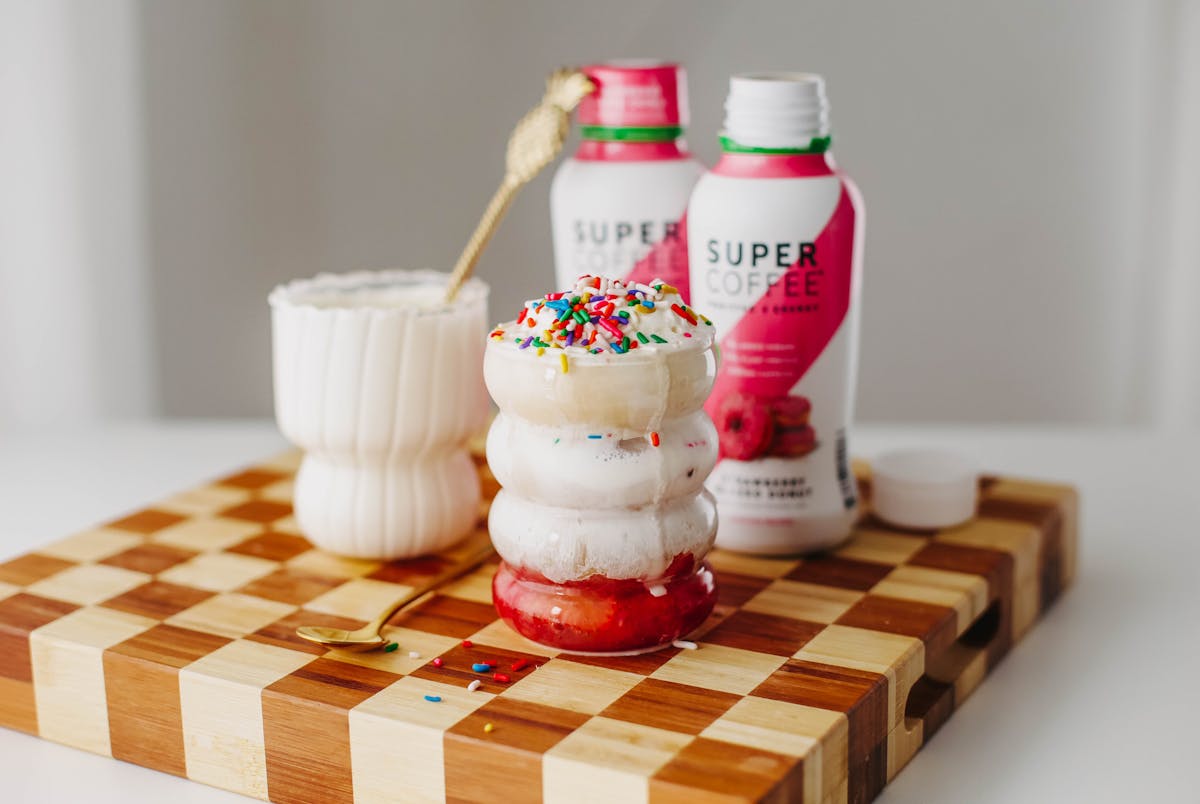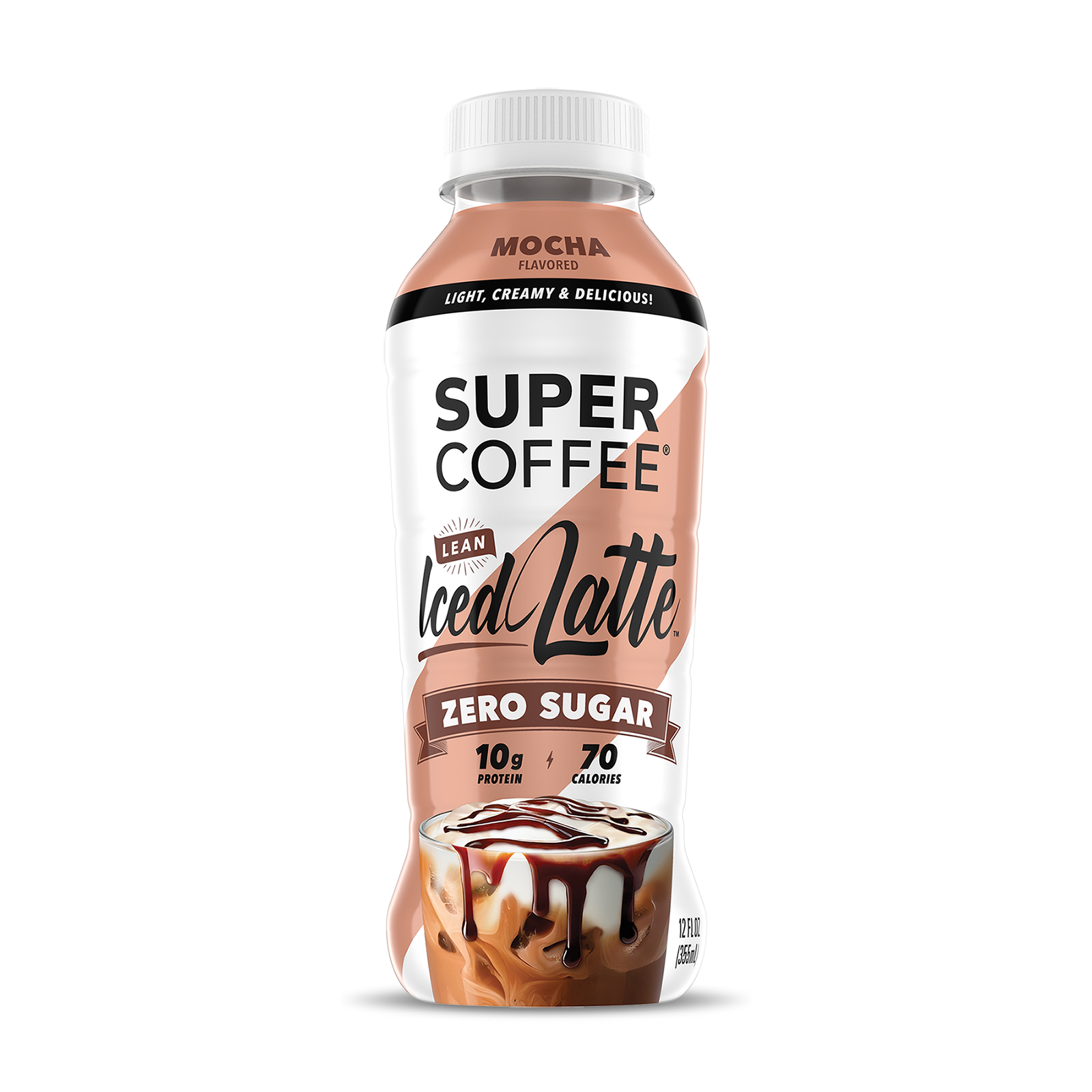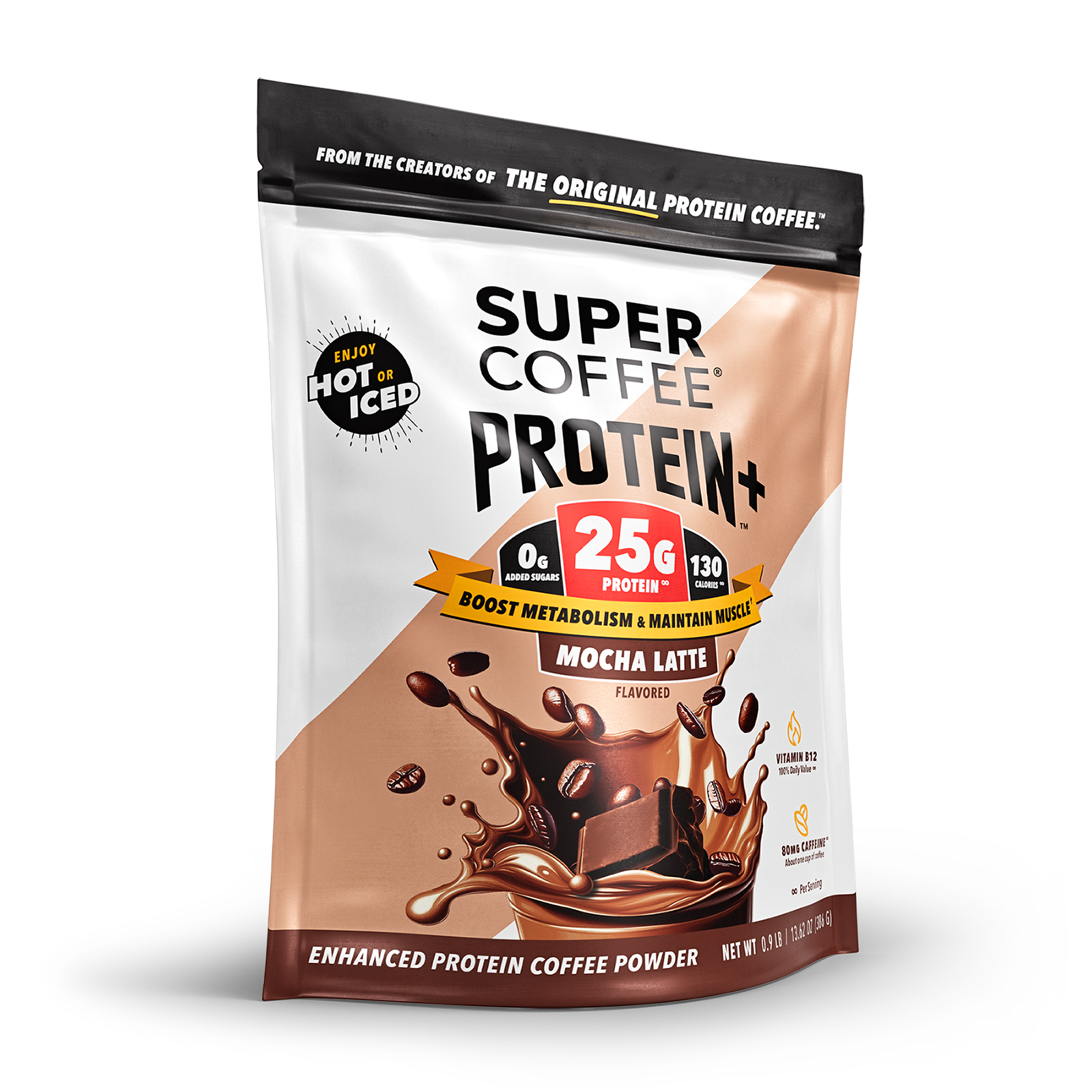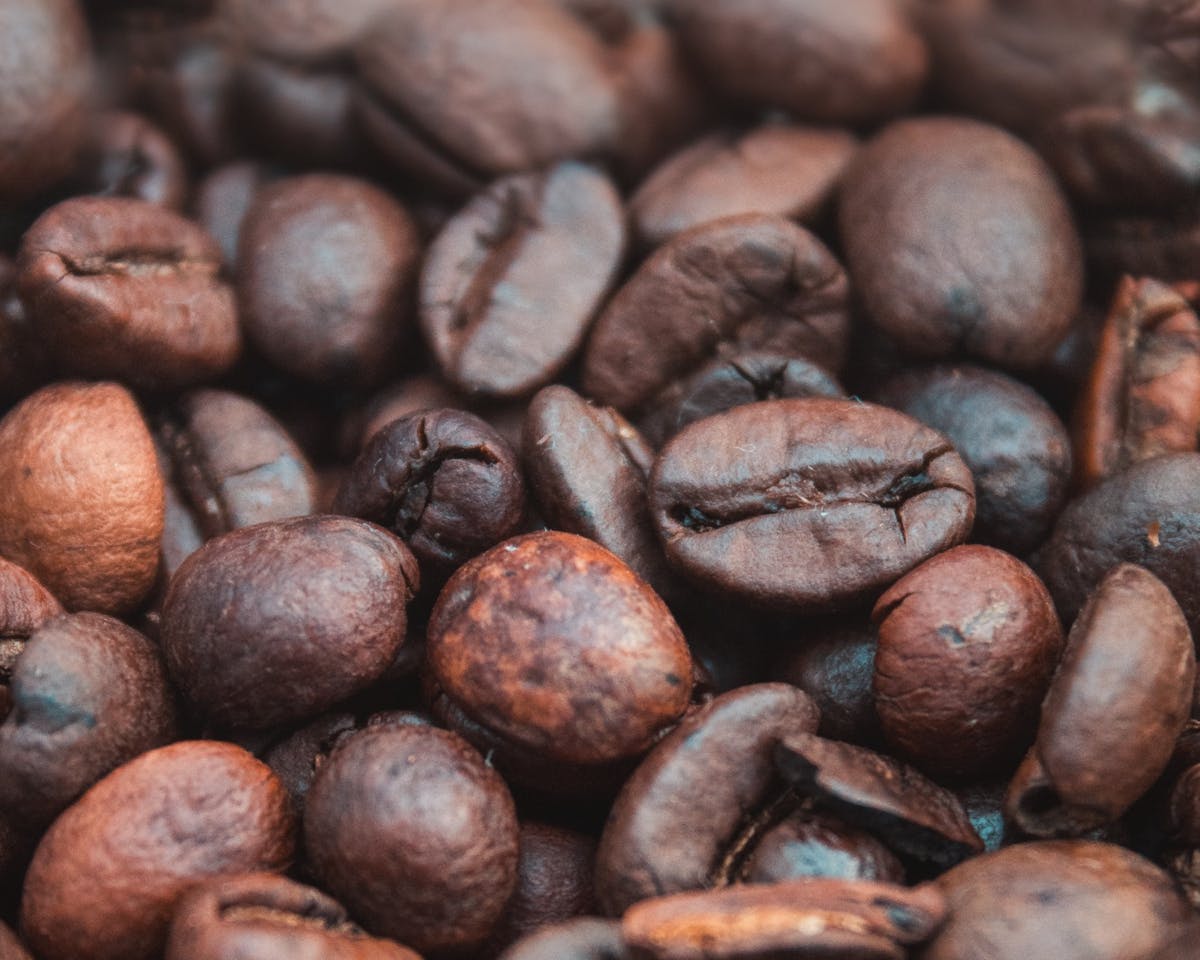Your cart is empty
What does caffeine do? Do you even have to ask? We all know the obvious answer.
Caffeine wakes you up – or if you’ve already been up for a while, it keeps you awake.
But that’s not the whole story; it’s only the opening chapter. Caffeine is also a mood elevator, it improves reaction time, and it can apparently enhance cognitive function. It may even lower the risks of developing Alzheimer’s disease and some forms of cancer.
Those are the positive effects, but there are negative ones as well. The jitters, an upset stomach, and an increased urge to urinate aren’t unfamiliar reactions to coffee drinkers who overindulge. However, excess caffeine consumption has also been linked to high blood sugar levels, high blood pressure and a decrease in bone density.
How can something that seems so normal – having a few cups of coffee, caffeinated beverages or energy drinks – have such an enormous range of effects on the body?
Let’s find out.
What Is Caffeine?
To understand how caffeine works, it’s necessary to understand what it is: a drug.
More specifically, caffeine is a central nervous system stimulant that’s found in dozens of plants; they produce caffeine because it’s a very effective insect repellent. Caffeine is a psychoactive drug – in fact, it’s the most widely-used psychoactive substance in the world.
Caffeine is naturally present in coffee beans, tea leaves and cacao beans, so it’s found in coffee, tea and chocolate, respectively. It’s also contained in many types of soda (mostly the brown ones, although other soft drinks like Mountain Dew are known for their high caffeine content as well), energy drinks and even over-the-counter pain relievers; the caffeine found in those products is a nearly-identical synthetic product, which is manufactured in labs.
Since caffeine is a stimulant, its primary effects are caused by interactions with receptors in the brain. It mimics the structure of a biochemical messenger called adenosine, allowing it to bind with the body’s adenosine receptors – and prevent adenosine from delivering its important messages. We’ll discuss that in more detail shortly, along with some of the other effects that caffeine has on the body.
What Does Caffeine Do? Positive Effects
The easiest way to look at caffeine’s beneficial effects is to break them into categories. We’ll start with the one that everyone associates with their morning (or afternoon) coffee.
Caffeine Wakes You Up and Keeps You Awake
The National Coffee Association reports that nearly two-thirds of all Americans drink coffee every day, averaging a little more than three cups per day apiece. And needless to say, most of them start their day off with a cup of joe.
We all know why: caffeine seems to jolt you awake and provide a boost of energy. That energy doesn’t last all day, of course, which is why U.S. coffee drinkers regularly visit their coffee machines at home or at work – or stop by the local Starbucks. And those who aren’t partial to coffee (or tea) are likely to rely on a stream of caffeinated sodas, energy drinks or energy shots which serve the same purpose: keeping them awake and energized.
That effect isn’t imaginary. It’s very real. But what does caffeine do to keep people awake?
Think back to the adenosine receptors in the brain, and how caffeine blocks adenosine from delivering its messages. One of those messages normally instructs the brain to make the body feel tired. More and more adenosine is released as the day wears on, which is why – without caffeine – we eventually feel tiredness or drowsiness setting in. Caffeine, however, stops that process and prevents us from feeling sleepy – at least, until its effects wear off.
Caffeine Makes You Feel Good
In truth, caffeine shouldn’t really get all of the credit. Hormones and neurotransmitters like dopamine, serotonin and adrenaline are really what make us feel good, happy and energetic.
But caffeine provides a huge assist. Normally, adenosine is responsible for moderating the surge of those hormones, preventing us from getting too “juiced.” You can probably guess what’s coming next: caffeine blocks the brain’s adenosine receptors, which would otherwise receive and implement those “stay calm” messages.
As a result, the “feel good” and “fight-or-flight” hormones can run wild, making us think that coffee or caffeinated drinks are putting us into a good mood. What’s really happening, though, is that caffeine is making sure we don’t receive messages that might otherwise ruin that good mood.
Caffeine is Good for Heart Health and Headaches
Here’s a weird one. Research has shown that in most parts of the body, caffeine acts as a vasodilator by stimulating the release of nitric oxide. That means it widens blood vessels to increase blood flow and improve circulation. Both can help prevent heart problems and the development of heart disease.
What makes that strange? In the brain, caffeine does exactly the opposite. It acts as a vasoconstrictor, causing vessels to narrow and blood flow to decrease. The apparent contradiction is due to our old friends, the adenosine receptors. Adenosine’s messages normally encourage the expansion of blood vessels – but caffeine blocks those messages, and there are more receptors in the brain than anywhere else. The end result: in the brain, the vessels end up narrowing, not expanding.
That ends up providing another benefit, too. Common medical advice for headaches is to consume caffeine; the stimulant is even an ingredient in some over-the-counter headache remedies. Here’s why. Headache pain is often caused when the brain’s blood vessels contact sensitive nerves right next to the vessels. But caffeine causes those vessels to contract, breaking contact with the nerves and easing headache pain. (Caffeine may be a bad idea for some migraine sufferers, though. Stay tuned.)
Other Potential Health Benefits of Caffeine
Research continues to discover new, encouraging ways that caffeine affects the body.
- Cognitive Function: Studies have found that caffeine intake appears to boost memory performance and alertness.
- Reaction Time: A recent research project shows that caffeine apparently speeds up the brain’s processing of information.
- Exercise Performance: Numerous studies have demonstrated that caffeine increases endurance and performance during workout sessions.
- Type 2 Diabetes: Research shows that regular caffeine consumption appears to significantly lower the risk of developing type 2 diabetes. (Decaf is apparently even better for protection against diabetes.)
- Degenerative Cognitive Performance: Numerous studies have shown indications that caffeine can prevent or slow the development of dementia and Alzheimer’s disease.
- Cancer: Moderate amounts of caffeine appear to greatly reduce the risk of developing several types of cancer, including colorectal and liver cancer.
There are also studies suggesting that caffeine may help protect the liver and skin, reduce the risk of developing gout and multiple sclerosis, and enhance the performance of good bacteria in the gut. The National Institute of Health (NIH) even reports that coffee drinking may lower the risk of premature death.
It’s not all unicorns and rainbows, though. There are some potential negative effects of caffeine to consider.
What Does Caffeine Do? Negative Effects
The U.S. Food and Drug Administration (FDA) believes that consuming moderate amounts of caffeine is safe for healthy adults.
However, most of us are familiar with the side effects that drinking too much coffee or caffeinated drinks can produce: restlessness and anxiety, jitters, increased heart rate, heartburn, insomnia, dehydration and more frequent urination (because caffeine is a diuretic). Those last two can often be avoided with increased water consumption and healthy eating.
Thankfully, those are all short-term effects. Very high “doses” of caffeine, though, can cause more serious problems including heart palpitations, dizziness and confusion, vomiting and seizures. A healthcare professional should be consulted immediately.
Long-term caffeine consumption can provide some of the benefits we’ve mentioned, but there are also a few possible drawbacks. They’re believed to include an increased risk of hormonal imbalances and osteoporosis (weakened bones caused by the flushing of calcium). There is also the possibility of aggravating existing problems like high blood pressure, anxiety, irritable bowel syndrome and epilepsy, and interactions with some medications. Medical professionals should be consulted if any of those symptoms appear.
There are two more issues to consider.
First, stopping or greatly reducing caffeine consumption can cause caffeine withdrawal symptoms like fatigue, headache, irritability or mood disturbances and inattention. These symptoms of caffeine withdrawal can be avoided by gradually switching to decaf or caffeine-free soda for a while.
Second, caffeine can be a migraine trigger in some sufferers; studies show that a “dose” of caffeine (or two) is unlikely to induce a headache, but the risk increases along with consumption.
That brings us to one final question.
How Much Caffeine Is Too Much?
The FDA and the Mayo Clinic say the “red line” is 400 milligrams of caffeine per day, which is the equivalent of about 4-5 cups of coffee, 10 cans of caffeinated soda, or 1-3 of the most popular energy drinks (which vary widely in caffeine content, from Red Bull’s 111mg of caffeine per can to 316mg in a single Redline Xtreme.)
A few of the caffeine benefits we’ve mentioned, like gout prevention and skin protection, seem to be enhanced with four or more cups of coffee per day. But most of the other positive effects of caffeine are seen with 1-3 cups daily – so as with most things in life, moderation is the best approach.
Blog posts

Cold, creamy and delicious - This chocolatey cold brew recipe is the perfect treat to kickstart your morning! The Recipe Chocolate Cream Cold Brew Prep Time: 1 minutes Cook Time: 5 minutes Ingre...

Indulge in the warm embrace of autumn with Pumpkin Spice Snickerdoodles - soft, spiced, and utterly irresistible! The Recipe Pumpkin Spice Snickerdoodles Prep Time: 10 minutes Cook Time: 1 hour ...

Low Carb Berries & Cream Waffles
These low carb/low sugar waffles are delicious, wonderfully crispy on the outside, and fluffy on the inside. You can also double batch and freeze for easy weekday breakfasts. Featuring our almost-...

This may be the most fun latte recipe we’ve tried yet! With gooey & decadent black chocolate drizzle and a thick layer of creamy French Vanilla, just one sip of this iced latte will transport ...

Strawberry Sprinkle Keto Coffee Recipe
Nutritional Info Calories: 274 Fat: 26.7g Carbs: 5.7g Protein: 4.5g Sugar: 2.1g Ingredients 3 strawberries, sliced. 3-4 tbsp heavy cream or half & half. Enough ice to fill a glass. 1/2 cup S...

8 Healthy Coffee Recipes That Are Better Than Starbucks
There’s no question about it. Coffee is good for you. Those who don’t like black coffee, of course, commonly add milk, cream and sugar – even if that also means adding calories, fat or carbs to the...





